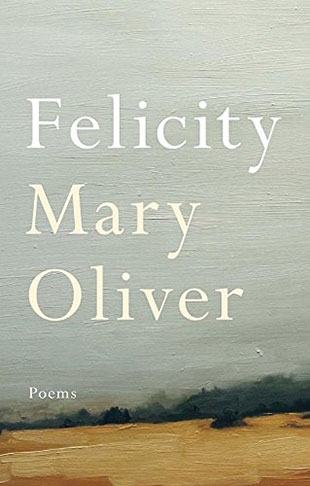Mary Oliver published her first book of poetry in 1963 when she was 28. Her fourth book, American Primitive, won the Pulitzer Prize in 1984. Many other wonderful volumes have followed, and she is now one of the most appreciated and widely read contemporary poets.
Oliver has described her work as "loving the world." Felicity is a lovely and liberating collection of love poems divided into sections on The Journey, Love, and Felicity. Those familiar with Oliver's work will relish the wonder, mystery, openness, reverence, and beauty in these poems.
In "The World I Live In," Oliver admits:
"I have refused to live
locked in the orderly house of
reasons and proofs
The world I live in and believe in
is wider than that. . . ."
What does the poet mean by this wider world? It is an imaginative realm where "trees speak back to the wind" and can be heard "crying out at the sawmill." Those lines are from "Do The Trees Speak?"
In "The Wildest Storm" Oliver imagines it as "a shaggy howling sky-beast" with "truly terrible laughter." Reason tells us to avoid this kind of outburst in the chaotic natural world.
Proofs keep us separate from each other as we keep on building our own private Berlin Walls. But those who have befriended the wider world rejoice in the remembering of the heart — a way of being that connects us to others as revealed in "When Did It Happen."
For Oliver, loving the world, holding hands with another, and being happy in our hearts are three of the best ways of making the most out of our brief sojourn on earth. Read "A Voice From I Don't Know Where" to savor these images and then put them into practice today. Welcome to the wider world given by God to us as grace.
